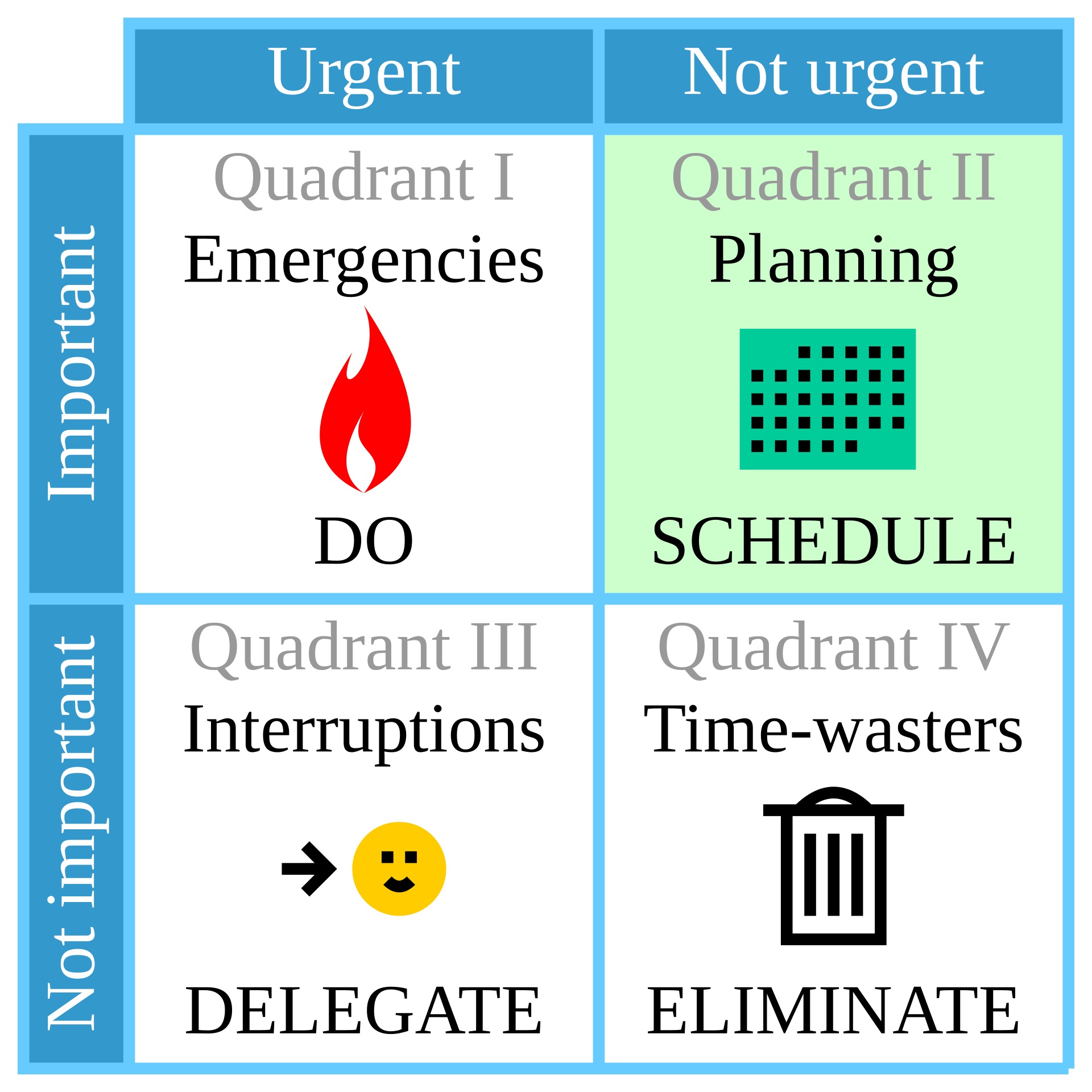“You can do anything, but not everything.” —David Allen
In the fast-paced project-laden world that many of us work in, it’s tempting to believe we can accomplish it all—if we just steal a little more time, stay late every night this week, or just "get better at multitasking" (no). The truth is nuanced—and captured in a phrase I repeat regularly to my teams: “We can do anything, but we cannot do everything.” This isn’t a limitation: it’s a guiding principle for sustainable productivity and intentional decision-making, when it comes to working our tasks. When you (or your team) face an overwhelming workload, the key to progress lies in ruthless prioritization.
Prioritization: The Compass for Productivity
Not every task holds equal weight. Our minds (and ego) want to think otherwise, but we cannot give every task critical and urgent importance: we must prioritize. Prioritization helps you and your colleagues separate the urgent from the important, the impactful from the peripheral. This applies to individual personal productivity and teams collectively pushing to a goal.
So we start with basics: categorizing tasks based on their urgency and importance. It sounds patronising, but it's really where we start. The Eisenhower Matrix is a great tool for this—it divides tasks into four quadrants (urgent/important, not urgent/important, urgent/not important, and not urgent/not important). This simple tool can be a game-changer. Focus first on tasks that are both urgent and important, then delegate or schedule the rest—and say “no” to distractions masquerading as priorities.

Eisenhower Matrix Example
Equally critical is recognizing that not everything is an emergency or urgent. A constant “firefighting” mindset leads to burnout, and poor-quality in work product. Instead, foster a culture of proactive planning. Identify those recurring emergencies and ask: “How can we prevent this from becoming urgent next time?”
The Lie of Multitasking
I wrote about this a few months ago, and it's never been more true: multitasking is often glorified as the ultimate productivity "skill", but in reality it’s a deceptive trap: a low-value hack—because the human brain isn’t wired to focus on multiple complex tasks simultaneously. Instead, what we call “multitasking” is actually rapid task-switching—and it comes at a cost. Each time you shift focus, your brain expends energy reorienting itself, leading to decreased efficiency and higher chances of mistakes or delays.
Studies show that multitasking can reduce productivity (one even shows it reduces it by up to 40%!), and significantly impacts the quality of your work. It also increases stress and fosters a false sense of accomplishment, as we confuse "busyness" with effectiveness. The antidote? Single-tasking: dedicate your attention to one task at-a-time, complete it, and then move to the next task. Not only will you finish faster, but the results will also reflect your full potential.
Teamwork and Alignment: Doing the Right Things Together
In a team setting, it’s vital to align around shared goals and clarify roles. When everyone understands the mission, and their contribution to it, prioritization becomes a collective effort—instead of an individual burden. Tools like Kanban boards and team stand-ups can really help visualize the work: help the team to see workloads together, and align focus. Be transparent about trade-offs—saying “yes” to one priority often means saying “no” to another. Let the team understand why certain tasks are being deprioritized—this transparency builds trust and reduces friction.
Picking Your Battles: Strategic Focus
The art of choosing or “picking your battles” applies just as much in the workplace as it does in personal life. Not every hill is worth dying on, and not every task demands perfection. Assess where your efforts will yield the most significant returns. If a task has minimal impact, it might not be worth your time, or not worth doing now ahead of other tasks. On the flip side, strategically investing in a high-impact opportunity—even if it’s challenging—can bring long-term benefits. The trick is you have to learn to choose among multiple priorities, and this is a skill in and of itself. Work on developing the ability to mindfully, and intentionally, aim your efforts (so ruthlessly prioritize, when needed) and you can triple your work output and accuracy!
A practical way to frame this is to ask, “Does this task align with our core goals?” If the answer is “no,” consider whether it’s worth your energy. Sometimes, letting go of lower-value tasks frees up space for more meaningful, high-impact work.
tl;dr The Takeaway: The Power of Focus
Understanding that you can’t do everything (all at once) doesn’t mean you’re failing—***it means you’re focusing on what truly matters! By aligning your team’s efforts, and choosing your battles wisely, you harness the power of intentionality. The same is true for individual productivity when you're faced with overwhelming amounts of work and choices. Just remember: You can do anything, but your greatest strength lies in limiting yourself to doing the right things well.
Adopting this mindset is difficult, it challenges our ego (to stop work on one thing, that may be more fun for the team, and pivot to another thing that is more critical...or brings more value) and it takes practice. But thinking this way doesn’t just improve productivity—it also leads to better results, less stress, and a greater sense of accomplishment. So, take a deep breath, reassess, and aim (the aiming part we don't do naturally, when we want to do it all). Put all your wood behind one single arrow at-a-time, don't multi-task endlessly, and just watch as you achieve completions and win after win.
Trying this is far better than drowning in incomplete tasks. Try it!